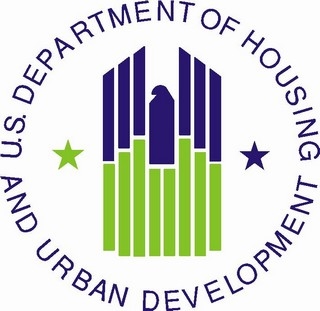Advertisement
HUD's 2014 Budget Rises $4.2 Billion

U.S. Housing and Urban Development Secretary Shaun Donovan released details of the Obama Administration’s proposed Fiscal Year 2014 HUD Budget, a plan that seeks to protect the rental housing and homeless assistance for millions of extremely poor Americans while increasing investments in key initiatives to serve some of the nation’s most distressed neighborhoods.
“The President understands that in today’s budget climate, we can’t build ladders of opportunity on a mountain of debt,” said Donovan. “As we work to strengthen our nation’s housing markets, we can’t lose sight of our commitment to house and serve millions of extremely low-income families who live on the margins of our economy.”
HUD’s budget is built on a number of principles outlined in the President’s State of the Union address:
►Growing the Middle Class While Bringing Private Capital Bank to the Market – by reigniting economic growth by strengthening the housing market, speeding the nation’s economic recovery, and building a stronger middle class
►Prioritizing Renewals – by maintaining a core commitment to protect families currently receiving rental assistance by keeping them in their home
►Creating Ladders of Opportunity for Millions of Americans – by creating Promise Zones in some of the nation’s hardest-hit neighborhoods
►Reducing Regulatory Burdens and Increasing Efficiency – by improving the efficiency and effectiveness of HUD programs
HUD’s proposed 2014 budget provides $47.6 billion, an increase of $4.2 billion or 9.7 percent above the 2012 enacted level. More than 90 percent of this funding increase is used to maintain current levels of rental and homelessness assistance for vulnerable families, the overwhelming majority of whom earn less than 30 percent of their area’s median income. The Budget also makes investments to revitalize high-poverty neighborhoods, reduce blight in communities hardest hit by the foreclosure crisis, and support sustainable economic development. Savings are achieved through reduced funding for new affordable housing construction and reforms to the Department’s rental assistance programs that do not reduce the number of families served.
HUD’s 2014 Budget request includes:
► $37.4 billion to provide rental housing assistance to more than 5.4 million low-income families.
► Nearly $2.4 billion in homeless assistance grants through HUD’s Continuum of Care and Emergency Solutions Grant (ESG);
► 10,000 new rental vouchers through the HUD-VA Supportive Housing (HUD-VASH) Program to provide permanent housing to homeless veterans;
► $400 million for HUD’s Choice Neighborhoods Initiative to transform 30 neighborhoods with extreme poverty into opportunity-rich, mixed-income neighborhoods. To date, the nine communities currently funded under this initiative leveraged $2 billion in other sources of capital, more than eight times their grant awards;
► Expands the Moving to Work Program to test innovative, locally driven policies to achieve positive outcomes for families, streamline program administration, and reduce Federal costs. To build evidence of what works, this expansion is accompanied by rigorous reporting and evaluation requirements;
► A combined $526 million to sustain rental assistance and produce an estimated 4,100 new supportive housing units through HUD’s Section 202 Supportive Housing for the Elderly Program and Section 811 Supportive Housing for Persons with Disabilities Program
► $726 million to address the housing needs of Native American Tribes;
► $332 million for a modernized Housing Opportunities for Persons with AIDS (HOPWA) program that will target funds to areas with the highest need;
► Reduces funding for the HOME Investment Partnerships Program. The Budget mitigates this reduction by providing $1 billion to capitalize the Housing Trust Fund to expand the supply of housing targeted to extremely low income families; and
► Reduces costs in HUD’s core Rental Assistance programs by simplifying administration of the medical expense deduction, better targeting rental assistance to the working poor, and setting more equitable Public Housing rents.
About the author




